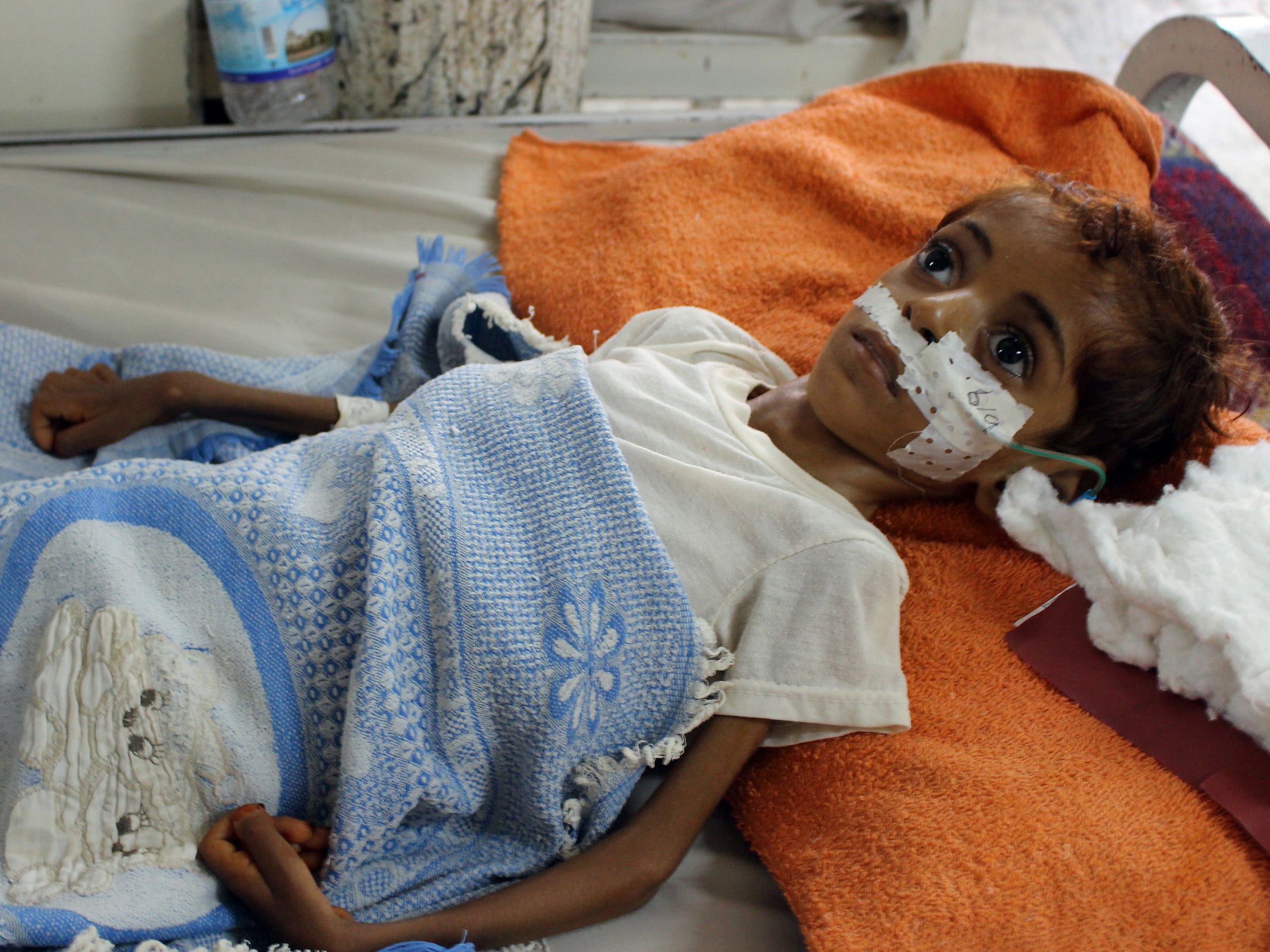Germany, Denmark, Netherlands and Finland stop weapons sales to Saudi Arabia in response to Yemen famine
UK has resisted calls at home and abroad to join the embargo
Your support helps us to tell the story
From reproductive rights to climate change to Big Tech, The Independent is on the ground when the story is developing. Whether it's investigating the financials of Elon Musk's pro-Trump PAC or producing our latest documentary, 'The A Word', which shines a light on the American women fighting for reproductive rights, we know how important it is to parse out the facts from the messaging.
At such a critical moment in US history, we need reporters on the ground. Your donation allows us to keep sending journalists to speak to both sides of the story.
The Independent is trusted by Americans across the entire political spectrum. And unlike many other quality news outlets, we choose not to lock Americans out of our reporting and analysis with paywalls. We believe quality journalism should be available to everyone, paid for by those who can afford it.
Your support makes all the difference.More European governments have imposed an arms embargo on Saudi Arabia in response to the country’s on-going killing of civilians in Yemen.
The British government has so far resisted joining international efforts to stem the unfolding humanitarian catastrophe, which the UK has sold £4.7bn worth of arms to fuel since 2015.
The Danish, German, Dutch and Finnish governments have now joined other countries in halting the sale of weapons to the autocracy, as the UN warns of “the worst famine in the world in 100 years”.
Saudi Arabia is intervening on the side of the Yemeni government against Houthi rebels, who control a large part of the country. The country’s internationally-recognised leadership no longer holds the capital and its opponents are backed by Saudi’s regional rival, Iran.
The United Nations says the bombardment is causing a humanitarian catastrophe, in addition to repeated and well-documented attacks on civilian targets, including schools, school buses, hospitals, food supplies, water infrastructure, and weddings. The conflict’s death toll is thought to be at least 10,000, with the famine’s far outnumbering that. Save the Children’s largest estimate is that 85,000 children under five have starved to death in the country.
The UN says by far a disproportionate number of civilian casualties are caused by Saudi coalition forces and that 22 million people are in need of humanitarian assistance, as well as eight million at dangerous risk of starvation.
The brutality of the conflict appears to be escalating, with 500 civilians killed just in the first nine days of August, according to figures released by the International Rescue Committee.
The UK has licenced £2.7bn worth of aircraft exports to the regime since the bombardment began, and £1.9bn worth of bombs and explosives. There is also on-going controversy about the extent of the direct role of British military advisors in the conflict.
MPs on the House of Commons International Development Committee, as well as the Business, Energy and Industrial Strategy Committee, both called for an embargo in 2016 but were ignored by the government.
The European parliament voted a month ago to back the embargo, which is also being supported by the governments of Austria, Belgium, Switzerland and Norway.
Sweden has said it will end the sale of arms but has not yet done so. Britain’s vocal opposition to an embargo puts it in the same camp as Spain, which U-turned on a previous commitment to end the sale of arms after protests by workers at shipyards that would lose out from contracts.

Conservative MEPs abstained on the European parliament vote on an embargo, which was carried by a large majority.
International pressure on the Saudi regime has increased significantly since the apparent torture, murder and dismemberment of journalist Jamal Khashoggi in one of the country’s consulates.
Andrew Smith of Campaign Against Arms Trade said: “These arms sales should never have been allowed in the first place. However, if these governments stick to their promises then it could set a major precedent and help the drive for peace in Yemen.
“There must also be action from countries like the US and the UK, which have licensed billions of pounds worth of arms to the Saudi regime, including the fighter jets and bombs that are playing a central role in the destruction.
“After almost four years of war, the need for a political solution could not be greater. The humanitarian crisis is the worst in the world and Yemen is on the verge of famine. It is time for all governments to push for a ceasefire and to stop prioritising arms sales over the rights and lives of Yemeni people.”

Join our commenting forum
Join thought-provoking conversations, follow other Independent readers and see their replies
Comments